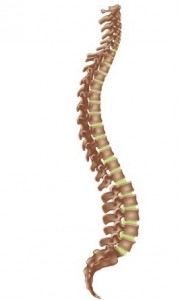We get asked about this subject a lot, “What’s the difference between quadriplegia and tetraplegia?”
Surprisingly, there isn’t any difference in meaning. Both words apply to paralysis of all four limbs. And both terms are used interchangeably these days.
The difference is in the derivation of the words. The word “Quadri” means four in Latin; the word “Plegia” means paralysis in Greek. So the roots of the word “quadriplegia” which means paralysis in all four limbs, come from both Latin and Greek. It combines two different languages.
The Greek word for four is “Tetra.” Combine that with “plegia” and you have a word with Greek roots for both halves. The British have always used the term “Tetraplegia” for four-limb paralysis, so they are not combining Latin and Greek words.
Such distinctions are important to the English, but Americans don’t seem to mind. Although there was a movement in the 1990’s to try to adopt “tetraplegia” in America, it never really caught on outside of the medical literature.
That’s why most Americans still continue to refer to “quad rugby,” for example, and why the word “quadriplegia” remains in common use.
Incidentally, since “para” is the Greek word for two, and “plegia” is Greek for paralysis the word “paraplegia” all comes from the same language of origin—Greek.

Thanks for finally talking about > “Quadriplegia” or “Tetraplegia? | Facing Disability | Blog < Loved it!
THIS DID NOT HELP
Your comment is so vague, it is Non Sequitur…. useless drivel!
Ignore Tashana’s feedback. Of course your article helped as it was in short and everyday language. Cheers
Excellent, clear and concise.
Very helpful! Greek vs Latin. Thank you!
This was helpful to know that the British and Americans use different terminology. Thank you. However, contrary to what you stated, I can testify as an American, these distinctions are actually important here as well. Just as the British and Ameicans both use the Latin term, “quadri”, in combination with the Greek term, “plegic”, we also use the Latin term, “tetra”, meaning “three”, in combination with the Greek term “plegic”. So, here there is more of a difference between quadriplegic and tetraplegic, than just the spelling and pronunciation of the words.
I rolled away and realized, in the heat of being offended by the statement “Americans don’t mind”, I was thinking of “tri”, not “tetra”. I apologize. We just prefer to commonly use one term, but many of us do care about the differences in terms.
Why? I’m an American & have been a quad for 40yrs & wondered why the term changed? What is it that offends you? BTW I’m not being sarcastic, I want to understand.
The term hasn’t changed. They both mean the same thing. It is purely a quirk of the English language. There are MANY common terms that are very different between the US and the UK, Such as:
In the US a car has a trunk and a hood, in the UK it has a boot and a bonnet
In the US we have Trucks, in the UK they have Lorries
…and the list goes on.
Quadriplegic is purely Latin, and is used in the US. Tetraplegic is a mixture of Latin and Greek, and is used in the UK… as far as WHY they do that, I don’t know. However, the English Language is considered a Germanic Language, but contains words with Latin and Greek roots… maybe the Brits are trying to demonstrate that
Didn’t this article just say the opposite, though? Tetraplegic, primarily used in the UK, is all Greek in origin. Quadriplegic, which is more prevalent in the US, combines the Latin “quad” with the Greek “plegia.”
Not trying to be pedantic, it’s just that if I’m understanding right, the Brits are actually keeping the roots consistent in origin. 🙂
Thank you. I’ve always wondered about this. Good to know.
Now that I know it, my first, gut response is, what’s wrong with Latin? My second response is, what’s wrong with combining a Latin prefix with a Greek stem? (Or a Latin stem with a Greek suffix?)
It also stands to reason that this linguistic intermingling should not bother Americans. Everyone in the United States is an immigrant and we’re proud of the fact that people from all nationalities, ethnicities and races are welcome here and all make up the People of the United States. (Let the British be as exclusive and snobbish as they choose. That’s one of the reasons we left Great Britain and won our revolution against that nation.)
Henceforth, I will continue to use “quadriplegia” but, now, with a greater sense of pride.
I agree! mixing word sources should not be a problem. So why should we be confined to using the word paraplegia? How about adding the term duoplegia?
It would be helpful to know which of the two alternative terms (“tetra-” vs. “quadri-“) is preferred by people with spinal cord injuries themselves.
If you have a SCI, please reply below with your preference, and the reason for your preference, if you have one.
Thanks.